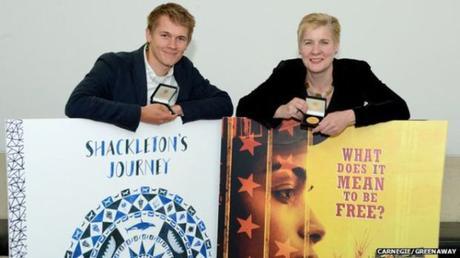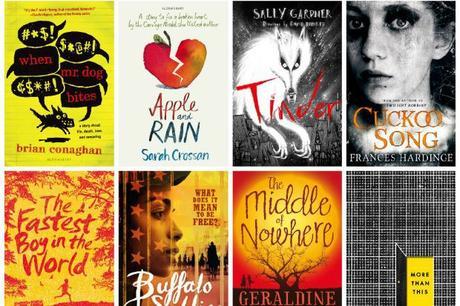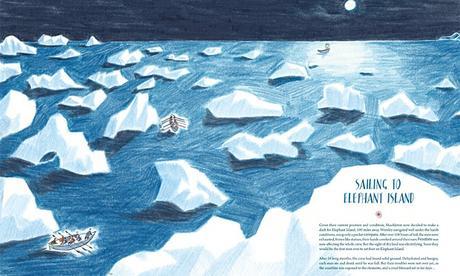
I was hugely fortunate to be invited to attend the award ceremony of the Carnegie and Kate Greenaway Children’s Book Awards on Monday. This is the UK’s major award for the best in children’s and young adult’s fiction, with the Carnegie Medal being given for the writing of a novel, and the Kate Greenaway Medal, named after the famous Victorian children’s book illustrator, being given for the best illustrated picture book or novel. A small group of students and I have been ‘shadowing’ the awards at school, meeting at lunchtimes to discuss the shortlisted books. What’s fantastic about this award is that the books are chosen from across a range of genres, and so being part of a reading group of this nature means that you have to read outside of your comfort zone. I know many adults wouldn’t touch young adult literature with a barge pole, and before I became a teacher I would have been one of them, but reading the shortlist for these awards has certainly challenged my prejudices and proven that there is just as much complexity, beauty, power and literary merit to be found in books written for younger readers as there is in books written for adults. Whether it’s romance, friendship, fantasy, horror, history or teen angst, the shortlisted books cover all manner of issues, time periods, cultures and genders, and my students and I often found ourselves having to tackle a novel we would normally have left firmly on the shelf thanks to it not fitting into our perception of what makes a good book. Most of the time, we were surprised at how much we enjoyed a book that we had assumed we would hate, and this taught us all the valuable lesson that holding onto uninformed prejudices can lead to you missing out on a considerable amount of pleasure. The lessons reading can teach you are truly endless!

As part of our reading group activities, we wrote reviews and made them into our own mini magazine, which we entered into a competition that won us front row seats at the award ceremony. It was a wonderful opportunity to meet all of the authors, and we were made to feel very special and important, especially as the ceremony organisers and the writers emphasised how much they valued the views of young readers and expressed how vital it is to children’s development for them to have access to books. Creativity and imagination are increasingly being stamped out in our education system, and to hear how passionate these writers are about ensuring children are provided with adventure and inspiration through the written word, challenging them to view their world from a different perspective and resist the drive to conform to the increasingly limited expectations and pressures of society, was marvelous. As something of an idealist who would quite gladly let my students spend all day reading under a tree than learn spellings, this was music to my ears, and I loved watching the eyes of my little cherubs light up with pleasure as they mixed with the crowds at the ceremony and got to speak to the writers they so admired. It was such a joy to them to be able to make a connection with the people who wrote the words they had loved reading, and they all came away inspired and even more enthused about literature, which couldn’t have been a more perfect outcome.

The winner of the Carnegie Medal, Tanya Landman, is a wonderful, engaging speaker who won for her novel Buffalo Soldier, about a young African-American girl who disguises herself as a man and fights in the Civil War. It explores themes of what it means to be free, and what it means to forge an identity for yourself in a world that views you as inferior. My students loved it and found it inspiring, especially as most of the girls they read about these days are rather insipid creatures who are depicted as only caring about clothes and boys. It wasn’t my favorite from the shortlist, I must admit, despite being a very worthy winner; I loved Geraldine McCaughrean’s The Middle of Nowhere, another novel with a strong female heroine, this time a young Australian girl, Comity, living in the outback in the 19th century, having to battle with a grief stricken father, an abusive lodger and the persecution of her best friend, a young aboriginal boy. I thought it was brilliantly inventive, moving and educational; I haven’t read many books set in Australia before, and I loved learning more about its culture and history. The winner of the Kate Greenaway Medal was William Grill, who became the youngest winner of the award at the age of just 25. He wrote and illustrated Shackleton’s Journey, a picture book retelling of the story of explorer Ernest Shackleton, and his inventive and powerful treatment of a life that has long been overshadowed by his more successful contemporaries is brought beautifully to life. I picked up a copy and was instantly enchanted, and was very much moved by Grill’s speech, where he said he wanted children to take away the message that, like Shackleton, they need never be afraid of failure, because the only true failure is in failing to explore at all. I love that there is so much brilliant literature available for children and young people, and that these writers are being rewarded for their work in opening children’s eyes to a world of magic and possibility that helps to mold their characters and provide them with inspiration for their futures. There has been lots of talk of late about the book being dead, and that younger generations, with their reliance on computers, no longer see the point in literature nor have the attention span to enjoy it. I don’t think this is true at all; the award ceremony proved to me that children’s literature is alive and well, and is just as vital now as it has always been.
